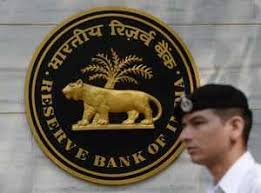The person who is doing most to undermine the Reserve Bank of India

SOMETIME IN THE 1990s Jagdish Bhagwati, one of India’s most distinguished economists, encountered Swaminathan Gurumurthy, a financial commentator associated with the Rashtriya Swayamsevak Sangh (RSS), a Hindu-nationalist organisation. Mr Gurumurthy was making the case that globalisation, brought in by well-connected financiers, was destroying India. Mr Bhagwati came to a caustic conclusion. If RSS ideologues like Mr Gurumurthy were economists, then Mr Bhagwati was a “Bharatnatyam dancer”, he said (referring to a traditional dance from Tamil Nadu performed by women).
Over 20 years later, Mr Gurumurthy’s beliefs have changed little. But today he is one of the most influential members of the board of the Reserve Bank of India (RBI), the country’s central bank, to which he was appointed by the government in August. He has led demands that the RBI loosen restrictions on India’s rickety state-run banks and hand more of its reserves to the government. Other than Narendra Modi, the prime minister, he is perhaps the man India’s liberal economists most fear.
Mr Gurumurthy had never before held a government position. A chartered accountant by training, he says he took the RBIposition “under some pressure”. But he admits that he has long offered “advice” to government. Plenty of people think that advice is taken extremely seriously, especially by Mr Modi, who shares his background in the RSS. “He’s really a fixer, he gets things done in Delhi,” says Mohan Guruswamy, a former government economist who has often clashed publicly with him.
The biggest thing Mr Gurumurthy is thought to have helped get done is demonetisation in 2016, when 86% of bank notes by value were abruptly withdrawn from circulation in an attempt to crack down on undeclared “black money”. This, he argues, prevented an economic collapse (most Indian economists reckon it almost caused one). He is also thought to be behind a scheme to expand lending to small businesses, and a rejigging of the government’s economic-planning department.
Mr Gurumurthy believes, as he put it in a speech last year, that the “the subject of economics is collapsing” and should be replaced by an Indian economics based on Swadeshi (self-reliance). Foreign capital should be kept out; the government should manage finance directly and small businesses should be prioritised over big ones. Western-educated economists who disagree need a “correction” of the mind.
Since joining the RBIboard Mr Gurumurthy has turned its monthly meetings into day-long slogs, as he puts forward these ideas, seemingly with the backing of the government. “His being on the board is not merely some symbolic thing,” says Vivek Dehejia of IDFCInstitute, a think-tank. His appointment was followed in October by the squeezing out of Nachiket Mor, an American-educated economist who had been attacked by the RSS. Weeks later Viral Acharya, one of the bank’s four deputy governors, warned that the government was undermining the bank’s independence.
A paragraph-long statement after the latest board meeting, on November 19th, said that the bank would direct more money to small businesses but fudged the biggest question: whether it would hand more cash to the central government. With an election approaching, few think that fight is over. If the government wins, more demands are likely to follow. And one man is sure to be at the front making them.
This article appeared in the Finance and economics section of the print edition under the headline “The man who would be king”


